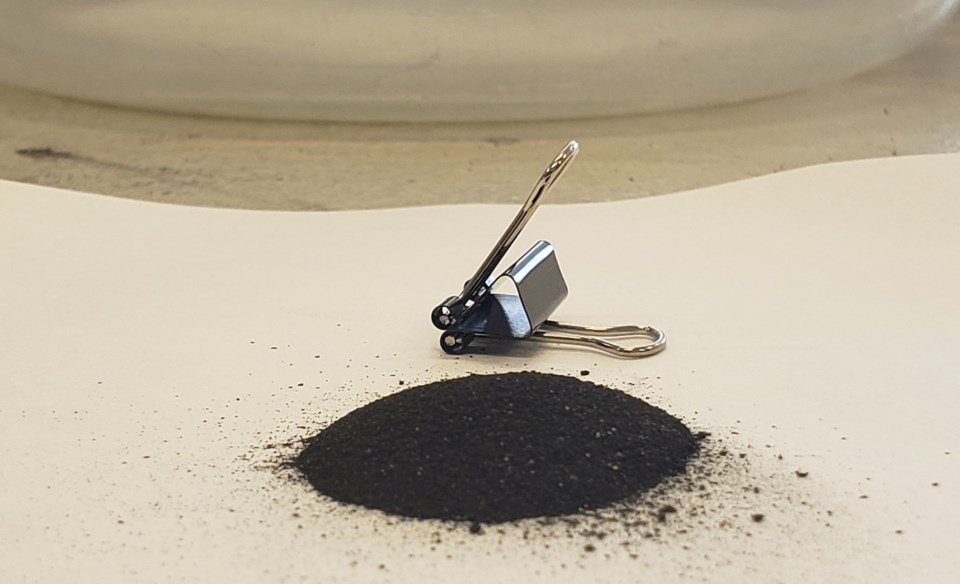Temiskaming refinery developer Electra Battery Materials has formalized its relationship with a southern Ontario Indigenous partner on a future battery recycling business, first revealed in 2023.
Aki Battery Recycling is the name of the joint venture between Electra and Three Fires Group, according to a Sept. 18 news release from Electra.
This partnership, first announced in May 2023, would involve procuring lithium-ion battery scrap in southern Ontario, shredding it at a facility, then feeding the ‘black mass’ material through an extraction process to recover valuable minerals that can be resold into the market.
Three Fires Group is an Indigenous regional economic development in southwestern Ontario. A number of electric vehicle and battery manufacturing plants are proposed and under construction within their area.
In this joint venture, Electra acts as the processing technology partner. The onus is on Three Fires to provide the black mass feed to Electra; the latter’s role would be in a technical and commercial leadership capacity to the project.
Three Fires will have to finance this joint venture, source the battery waste material and select a location for a shredding plant. The black mass would then be sold to Electra, which would recover lithium, nickel, cobalt and other minerals used produce new lithium-ion batteries.
This latest news release makes no mention of financing and timelines to put these plans into motion. Three Fires said last year it was looking at a $10-million investment in this proposed joint venture.
In the last couple of years, Electra has been testing out its proprietary black mass recycling process at a pilot plant on its Temiskaming refinery site.
For all its promise, Electra considers battery recycling a side business that is in the research and innovation phase. The company’s main focus is arranging financing to finish construction of its cobalt refinery in northeastern Ontario.
Electra has kept the mineral recovery rates from this recycling process under wraps while shipping a nickel-cobalt mixed hydroxide precipitate product, known as MHP, to an undisclosed customer.
In a statement, Electra CEO Trent Mell said this sustainable, closed-loop system provides value to the marketplace and the environment.
“Aki Battery Recycling aims to address the environmental impact of future battery waste in Ontario and beyond, by returning battery scrap back into the supply chain. This venture not only aligns with our mission to onshore North America’s EV battery supply chain, but to do so sustainably and through a scalable solution to meet the growing needs of the North American electric vehicle industry.”
The news release said that the global volume of battery waste will increase from 23.3 gigawatt hours in 2023 to 376.1 gigawatts by 2035, “bringing the potential recycling market to a size which is larger than the entire lithium-ion battery market in 2020.”
Reggie George, Three Fires Group’s executive director of special projects and partnerships, sees this “growing challenge of battery waste” as providing an opportunity for them.
“With the billions of dollars being invested into the southern Ontario battery manufacturing industry, ensuring that valuable materials are recovered and reused in Ontario, rather than discarded, is central to our shareholder First Nations’ interests. This initiative not only underscores our dedication to environmental stewardship but also enhances the circular economy in the battery industry.”




